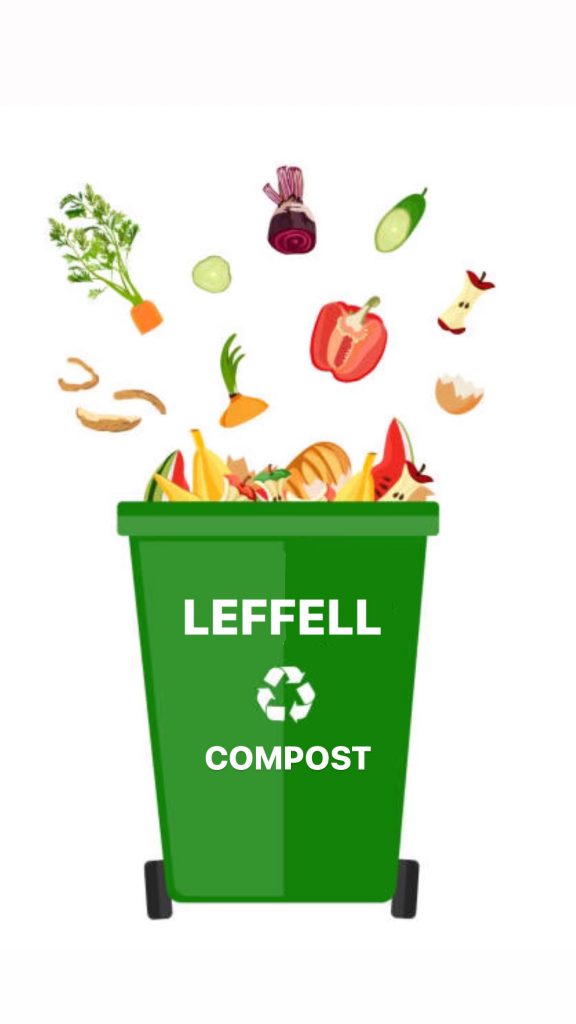By Leah Raich ’25
Did you know that if everyone in the United States composted regularly, it would be equivalent to removing 7.8 million cars off the road?
When we discard our food waste in regular garbage cans it ends up in landfills where it transforms into greenhouse gasses. However, if we were composting, that food waste could be turned into nutrient-filled soil. This is helpful in the growth of plants, instead of polluting the environment through landfills.

“The idea of composting has been around in our school for many years,” HS Science Teacher Aaron Kogut said. “The school has composted before, but they started getting mice so they started talking about doing it outside. However, there are other animals like raccoons and deer outside.”
“I did some research and I found out that the town of Greenburgh has composting for residents. I started emailing with this woman at city hall and I asked her if we could be considered residents so we could bring our compost to the composting site. It took a couple months and I had to keep pushing, but eventually they said yes.”
Every day, a faculty member or a student drives the composting to the Greenburgh City Hall compost drop off, which is only five minutes from the school. If a student drives the compost, they can earn fifteen minutes of community service.
“If we get the entire student body who have cars here and the teachers who are involved to drive the compost, everybody will only have to do it once every two months,” Kogut said. “That’s not that bad, so that means that everybody is sharing the responsibility and the burden that comes along with it, but we’re doing something we all believe in and it will make a big difference in our own future.”
However, driving the compost isn’t the only way students are involved. HS Science Department Chair Vivian Nadasdi teaches a class on environmental science and has gotten her students involved.
“I’ve asked students in my environmental science class to volunteer and stand in front of the composting bin and direct students to put their plates and their food scraps into the bin,” Nadasdi said. “I’d also like them to go into Tefilah when it’s full grade and make an announcement. There have been announcements in the Daily Bulletin, but if they [students] go in and reiterate where each thing goes, I think this program will work much better.”
There are still ways to help for students who aren’t in the environmental science class or able to drive yet.
“Each classroom has a paper bin, a commingled bin, and a trash bin,” Nadasi said. “If there’s a bin that’s designated as commingled and has other stuff in it, like food or paper, the cleaning crew has to throw all of it out. All of us have to do our part and throw out everything in the right place.”
It might seem like throwing your old test in the recycling bin won’t do anything, but if everyone does it, we can have a much bigger impact on the world.
“Every small bit helps,” Kogut said. “If everybody does their part, we can make a big difference. This is just one more way we make a difference in the future we leave for succeeding generations.”
While it may be a challenge to compost, it is a significant way we can help contribute to the grand goal of making the world a better place.
“My belief is in order for this to really work, we have to change the culture in this school,” Nadasdi said. “Everybody has to do this and everybody has to be committed to this.”




